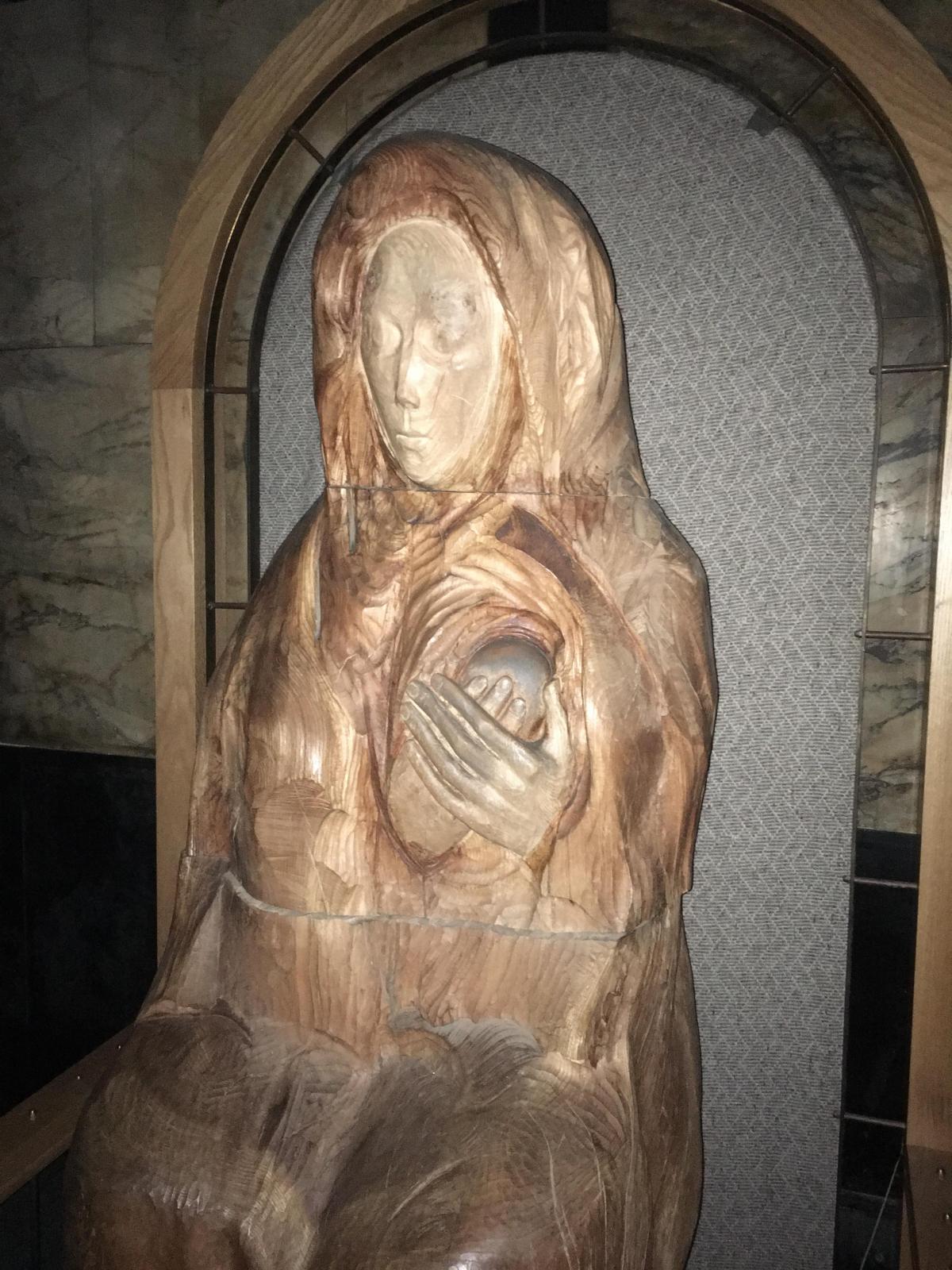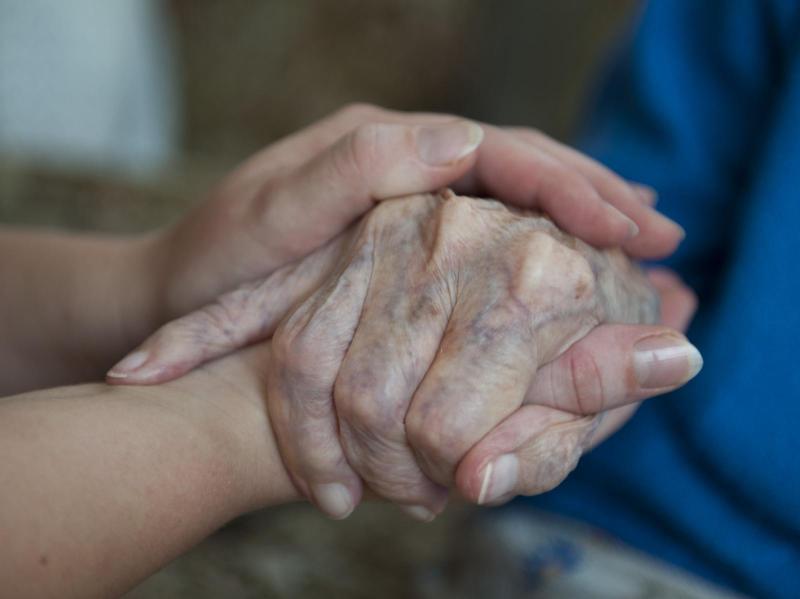By Reverend Roger Carr-Jones, Marriage and Family Life Cordinator, Diocese of Westminster
If you ever have the opportunity to visit Preston take a moment to visit the Jesuit Church of St Wilfred. As you enter the narthex you will encounter two carvings by the world-renowned sculptor, Fenwick Lawson. One is the image of St Wilfred and the other is that of a seven-foot seated mother, whose left breast is the shape of a baby’s head, being protected by both the mother’s hands. Both sculptures were commissioned by the then parish priest Fr Denis Blackledge SJ. It is the second remarkable sculpture, called Hidden Life, that forms the heart and soul of this reflection. Whilst it is a sculpture that I have yet to see in person, I have been profoundly struck by its creation, image and message.
Hidden Life is such a powerful expression of love, sorrow and solace. The sculpture, as Denis intended, is a cenotaph where mothers and fathers can simply rest, weep and reflect for their babies lost in the womb, at birth or in the early weeks of life.
Lawson’s sculptures are very tactile. They are not made just to be viewed but to be experienced. They invite touch. Touch is very much a part of the mother’s journey when carrying and caressing the child as it moves in the womb, or that immediate moment of bonding after childbirth. If I find it virtually impossible to express in words what the loss of a child might mean, I stand on holy ground in humility for those mothers and fathers where such pain has been experienced. My wife and I ourselves experienced the loss of a baby: although this was in the first trimester, so the possibility of bonding through touch was denied, over twenty years later this is still a raw point for my wife. I know that, when meeting a couple experiencing such a tremendous pain of loss, we must be ready to listen to the story, to reach out in love and then simply hold them in our prayers.
In my ministry as a deacon there are three occasions where I have conducted funerals for babies. Two were consecutive stillbirths in one family, the other a baby born with a terminal condition, surviving for just a few weeks after birth. It is not possible to walk in the shoes of the parents: we must learn the art of accompaniment, feeling humbled and inadequate before their pain and loss. At times the only gift we can give is prayer, and to provide the apostolate of the ear, to borrow a phrase dear to Pope Francis.
For resources to help those who have experienced loss, as well as practical insights and guides to inform the wider community, visit the Baby Loss Matters website.
Image reproduced with the kind permission of the Preston Jesuit Community.




